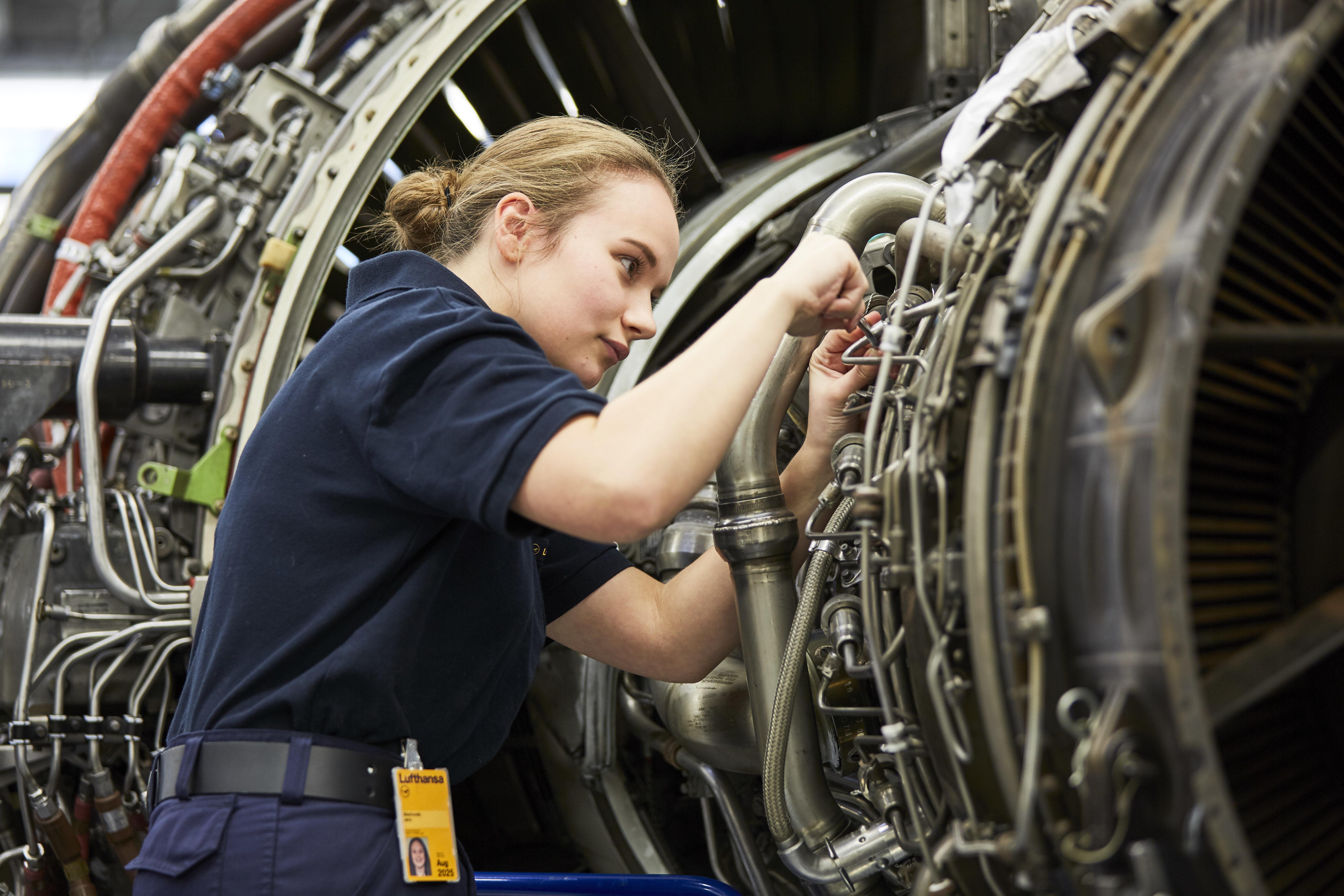LHT Presses on With Training Initiatives Despite Pandemic Setbacks

Lufthansa Technik (LHT) is forging ahead with its workforce pipeline initiatives, despite setbacks this year due to the novel coronavirus pandemic. Although the MRO is still largely under a short-time working plan, it will begin vocational training for 240 apprentices this month across its business units.
“Even though we have no employment for many of our staff at the moment, we continue to train. Because one thing is clear: we will emerge from this crisis again and must then be prepared in the best possible way for the demographic change in our workforce” says Antonio Schulthess, chief executive human resources, engine and aircraft systems, LHT.
According to LHT, it decided to exclude its apprentices and related staff from short-time work. Although this has created challenges in offering sufficient practical experiences to trainees, LHT says it is working to cover missing practical periods through agile project management and personnel development activities.
Of the 240 apprentices starting this year, 192 will study directly at LHT while the remainder are apprenticing at other companies within the LHT Group, including Lufthansa Technik Logistik Services, Lufthansa Technik AERO Alzey and N3 Engine Overhaul Services. LHT had initially planned to have a higher number of new apprentices this year (it added 246 new trainees in 2019) but had to adjust accordingly due to effects from the pandemic.
The LHT Group currently has more than 750 young people undergoing training or studying for careers within aircraft engineering, industry or logistics. According to Barbara Koerner, head of vocational training and dual students at LHT, COVID-19 has induced some changes to the timing and practicalities of these programs.
“Video conferencing tools are technologies we already had in place or were in roll-out phase before the COVID-19 crisis. Their usage was extended in order to establish effective remote collaboration,” says Koerner, noting that at the height of the pandemic training took place almost entirely online. “Thus, training courses that could be carried out via remote media were partly brought forward. If the apprentices could not be employed in their areas of work due to short-time working, we developed alternative training options (such as project management). For this purpose, all trainees and teachers had to be equipped with the necessary IT at very short notice.”
Since LHT was unable to offer take-over contracts within the company to apprentices due to complete the program this summer, Koerner says the MRO has asked these apprentices to finish their training next year as planned, at which time it hopes to be able to offer them other opportunities. Recruitment for 2021’s apprenticeship program has been postponed for the time being, but LHT hopes to begin filling positions soon.
Meanwhile, LHT is still focused on providing opportunities for underrepresented demographics. The number of women in the apprenticeship program is up to 14% compared to 12% last year, although LHT says this is still too low and it intends to continue efforts to attract women to technical professions. Women-focused career events such as Germany’s annual Girls’ Day and MINT PINK were unable to happen this year due to the pandemic, but Koerner says LHT is hoping to offer them again as soon as possible.
LHT will also bring on two apprentices with hearing impairments this year to start training as tool mechanics. The MRO has offered these apprenticeships to people with hearing impairment for 20 years, during which the apprentices are accompanied by sign language interpreters throughout the program.





